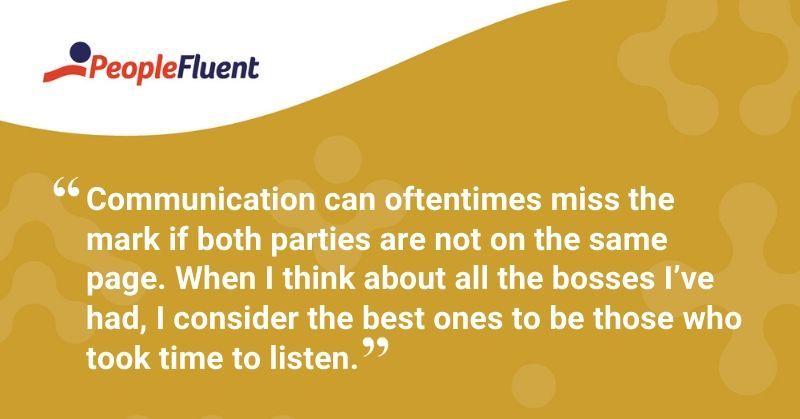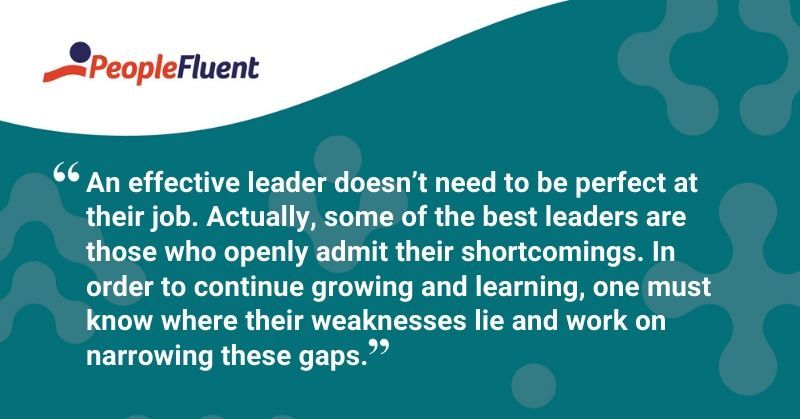Published: Apr 17, 2020Time to read: 7mins Category: Insights
Top 5 Skills of an Effective Business Leader
Companies and research analysts alike spend countless hours on identifying the common traits among successful leaders. One of the reasons this is such a popular topic of discussion is because good leaders tend to develop their skills more regularly and effectively than leaders who find success more challenging to achieve. In this article, we examine the top skills of an effective business leader and offer tips on how to constantly improve.
While it won’t come as a surprise to most adults, the American Institute of Stress found that the main causes of workplace stress are people issues (28%), and workload (46%). Furthermore, the study cites that job-related stress is the major source of stress in American adults. And it isn’t projected to slow down.
So, what does that have to do with effective business leaders? In order to understand what makes an effective business leader, we must first understand how poor leadership can negatively impact the workplace. The answer isn’t as complicated as it may seem, and it mostly boils down to the fact that good leaders tend to have fewer employee issues, lower employee turnover, and an overall happier work environment—all of which are key elements to lowering workplace stress.
Not only can poor leadership take a toll on your workforce but it can also hurt your organization and the ability to grow your business. That’s why finding and developing strong leaders is more important than ever. Below are the top 5 skills of an effective business leader and insights on how you can continue to improve your technical and soft skills for greater success.
Why not read: '4 Innovative Tactics Your Talent Management Strategy Needs'
1. Change Management
As much as stress is inevitable in our daily lives, so is the event of change. Organizations must have a forward-thinking mindset when it comes to change. In order to do so, this requires leaders who embrace and support that change. Rather than creating resistance or fear of change among the ranks, a successful leader will properly manage change by strategically planning and deploying it. This top-down approach creates a positive mindset around change which allows leaders to build trust and give way to smooth transitions.
Furthermore, an effective business leader will see change as an opportunity for growth—both individually and collectively. Ensuring that your workforce is equipped with the tools they need to facilitate changes will make the process less cumbersome and allow for continued productivity.
2. Coaching
In today’s multigenerational workforce, business leaders have their work cut out for them. Managing the many different personalities and idiosyncrasies that come with such a diverse group of employees can be challenging. The effective leader accepts challenges and uses them to create opportunities. One of the opportunities should be to coach and mentor employees on their level, which can also create a chance to find and develop future leaders for your organization.
For instance, employees in the younger generations (Gen Z or Millennials) may prefer to have frequent coaching sessions to grasp new concepts or understand how the business works. This helps leaders build relationships with their teams by meeting them where they are. Your older generations may not feel it necessary to have constant communication with a manager or supervisor but it’s still important to check in and offer support with any roadblocks. This is a small gesture that can help leaders establish better rapport in the long run.

Related resource: 'Succession Product Sheet for Mid-Enterprise'
3. Listening
Communication is almost always on every list of “top skills” that are in demand, both for leaders and employees in various positions. However, communication can oftentimes miss the mark if both parties are not on the same page. That’s why we’ve added listening to this round up. When I think about all the bosses I’ve had, I consider the best ones to be those who took time to listen.
This is a favorite quote of mine from Stephen Covey, an American businessman and author of “The 7 Habits of Highly Effective People”, which is where this quote is from. It speaks volumes to why so many people struggle with communication. Having been in a management position in a previous life, I was one of those who ‘missed the mark’ on the communication front. Managers often communicate to their teams but not always with their teams.
Listening may be one of the most critical tools a leader has, yet it’s vastly underrated. The best part is that being a good listener isn’t difficult but it does take practice. Here are a few tips to help you get into the habit of being an active listener:
- Listen without judgment and never interrupt someone
- Ask probing questions to help you better understand the speaker
- Paraphrase what you’ve heard to ensure you’ve properly understood the person
- Don’t multitask, e.g. checking your phone or laptop, sending emails, etc.
- If you’re not able to be face to face, suggest a video call so you can still make “eye contact” with your employees
- Remind your team(s) that you’re always available to them. This open-door policy is important to building strong relationships and creating a culture of collaboration.
Remember that if your employees don’t feel comfortable communicating with you, issues may remain unresolved. This can lead to unilateral discussions that can often result in contention among your workforce and internal problems that can compound a leader’s already challenging job.
More from the blog: 'Retooling Talent Management: How HR Teams Can Engineer a New Era of Productivity'
4. Self-Assessment
An effective leader doesn’t need to be perfect at their job. Actually, some of the best leaders are those who openly admit their shortcomings and work harder to develop new skills or, better yet, appropriately delegate tasks to those around them. In order to continue growing and learning, one must know where their weaknesses lie and work on narrowing these gaps.
Effective leaders who practice self-assessment may ask themselves questions like:
- What are my strengths and what aspects of my job do I enjoy doing?
- What aspects of my job do I dislike and how are these tied to my weaknesses?
- How can I be a better leader?
- Which employees are capable of completing x, y, z? Delegation is a strong tool for leaders to offload projects onto employees who have the capabilities to perform certain tasks.
Contrary to belief, knowing and admitting weakness does not make us weak; it allows us to continue to assess ourselves and better understand how we can improve. It also encourages others to do the same. Furthermore, an effective leader will use their self-assessments to hire the best-possible candidates and develop existing staff whose skills complement their own.

5. Perception
If you’ve been told that you’re a perceptive person before, there’s a good chance you’d make an effective business leader. Knowing how your peers and employees perceive you can be a powerful tool to manage your workforce. Gaging others’ perception of you simply involves observing their behaviors. If you find the break room empties out when you walk in or staff members stop conversing around you, you may want to reassess your management approach.
Through observing how you’re perceived in the workplace, you can find opportunities to further improve. While we note that self-assessment is one of the critical skills for effective business leaders, the ability to solicit and process feedback is also essential. This feedback from your staff and peers can create an opportunity for you to grow as a leader. Those around you may begin to take notice and appreciate your efforts.
While these aren’t an exhaustive list of skills for effective business leaders, they have taken the spotlight in 2020. As the importance of soft skills continues to grow, leaders who possess—or aim to develop such skills—the aforementioned list is a good starting point that can have an immediate impact on the happiness and success of your organization.
Interested in learning more about how you can increase your team’s productivity and foster a more human work culture?
Listen to a recording of our recent webinar, ‘How to Operationalize Reskilling Efforts with a Human Approach and an ROI’.